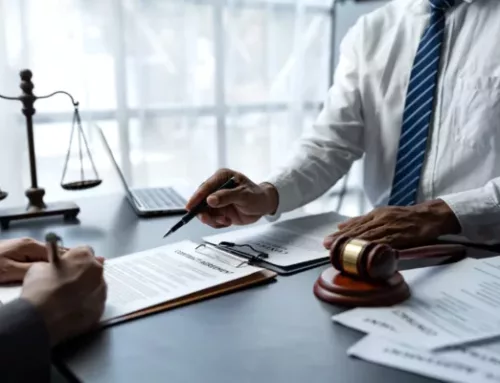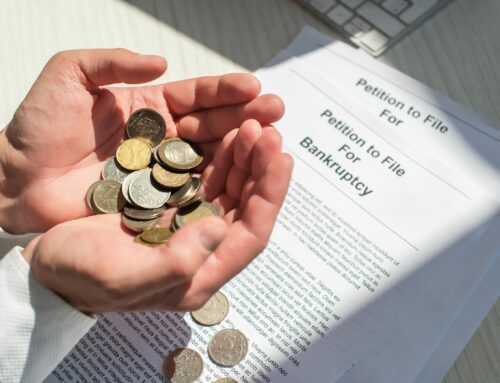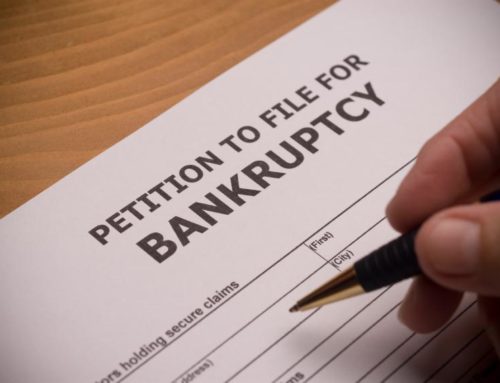Are your financial problems driving you to seek the bankruptcy protection that bankrupt filers get? The automatic stay that is put in place upon a bankruptcy filing is an injunction that stops collection agencies and creditors in their debt collection efforts. The bankruptcy process is supposed to help you get out of debt, but there are measures you can take before and after filing for bankruptcy that will make the experience less painful as well as ensure that you achieve the best outcome possible.
What are some of the things you have to address in preparation for filing bankruptcy?
- Bank accounts
 Since the bankruptcy trustee is authorized to take a nonexempt bank account money to pay off your debts, it’s best that you don’t have a lot in the first place. Your bank account probably won’t be among your bankruptcy exemptions. Even if it wasn’t among your non-exempt assets, the exemption coverage wouldn’t amount to much. Besides this, your bank might also take it upon itself to freeze your account if it learns that you’re filing for bankruptcy. While you can ask your trustee to request the freeze to be lifted, you can preempt these potential problems by taking prudent steps before you file your bankruptcy petition. One of the things you can do is to pay your bills using your bank account funds before filing for personal bankruptcy.
Since the bankruptcy trustee is authorized to take a nonexempt bank account money to pay off your debts, it’s best that you don’t have a lot in the first place. Your bank account probably won’t be among your bankruptcy exemptions. Even if it wasn’t among your non-exempt assets, the exemption coverage wouldn’t amount to much. Besides this, your bank might also take it upon itself to freeze your account if it learns that you’re filing for bankruptcy. While you can ask your trustee to request the freeze to be lifted, you can preempt these potential problems by taking prudent steps before you file your bankruptcy petition. One of the things you can do is to pay your bills using your bank account funds before filing for personal bankruptcy.
- Set-offs
If you’re considering filing for bankruptcy, make sure that you don’t have a loan or a credit card debt with a bank at which you hold an account with funds, or the bank may take advantage of the set-off clause, allowing it to pay back your debt with the money in your account.
Another possible set-off involves utility companies, like gas and electric. They may use your security deposit to pay off what you owe when you file for bankruptcy. Using up your deposit means that you have to provide a new one. Avoid this happening by declaring bankruptcy only after you’ve paid your bills or you’ve added to the deposit. Remember that utility companies cannot stop providing services to their subscribers because of unpaid bills once these debtors declare bankruptcy.
- Automatic payments
Take note that creditors authorized to automatically deduct payment from your bank account or paycheck have to be notified that you have filed for bankruptcy before they stop making these automatic deductions. Notice may not get to them right away, so you can take it upon yourself or your lawyer to let them know through fax or email. Make sure that you include your bankruptcy case number, your filing date, and the bankruptcy court with which you filed.
Before you file for bankruptcy protection, remember to stop all automatic deductions from your bank account, credit card, and paycheck that you have authorized. You may find that you can’t afford your main expenses with your monthly income if you forget to do this. Also, remember to halt automatic monthly charges from services to your credit card. A debtor should particularly address automatic payments to creditors involving dischargeable debt.
Do You Want to File Bankruptcy! Seek Help from a West Virginia Bankruptcy Attorney Today!
In order to file for bankruptcy correctly and go through bankruptcy proceedings as smoothly as possible, consult a bankruptcy lawyer for legal advice. Bankruptcies involve far more than submitting the right documents and properly accomplished bankruptcy forms. A well-thought-out plan of action is often called for so that filers get the best outcome possible. From the time before filing and even after the bankruptcy discharge, it’s good to be guided by the expertise of bankruptcy attorneys.
Legal aid is invaluable in bankruptcy. You want to be able to correctly choose from the different types of bankruptcy in the bankruptcy code, identify the right bankruptcy chapter between liquidation and reorganization to file under, know how to file in the most prudent way possible, and do everything within boundaries of bankruptcy laws. For legal assistance in achieving debt relief and other matters involving bankruptcy law, call us at Thomas E. McIntire and Associates, L.C. to speak with one of our experienced West Virginia bankruptcy lawyers.





